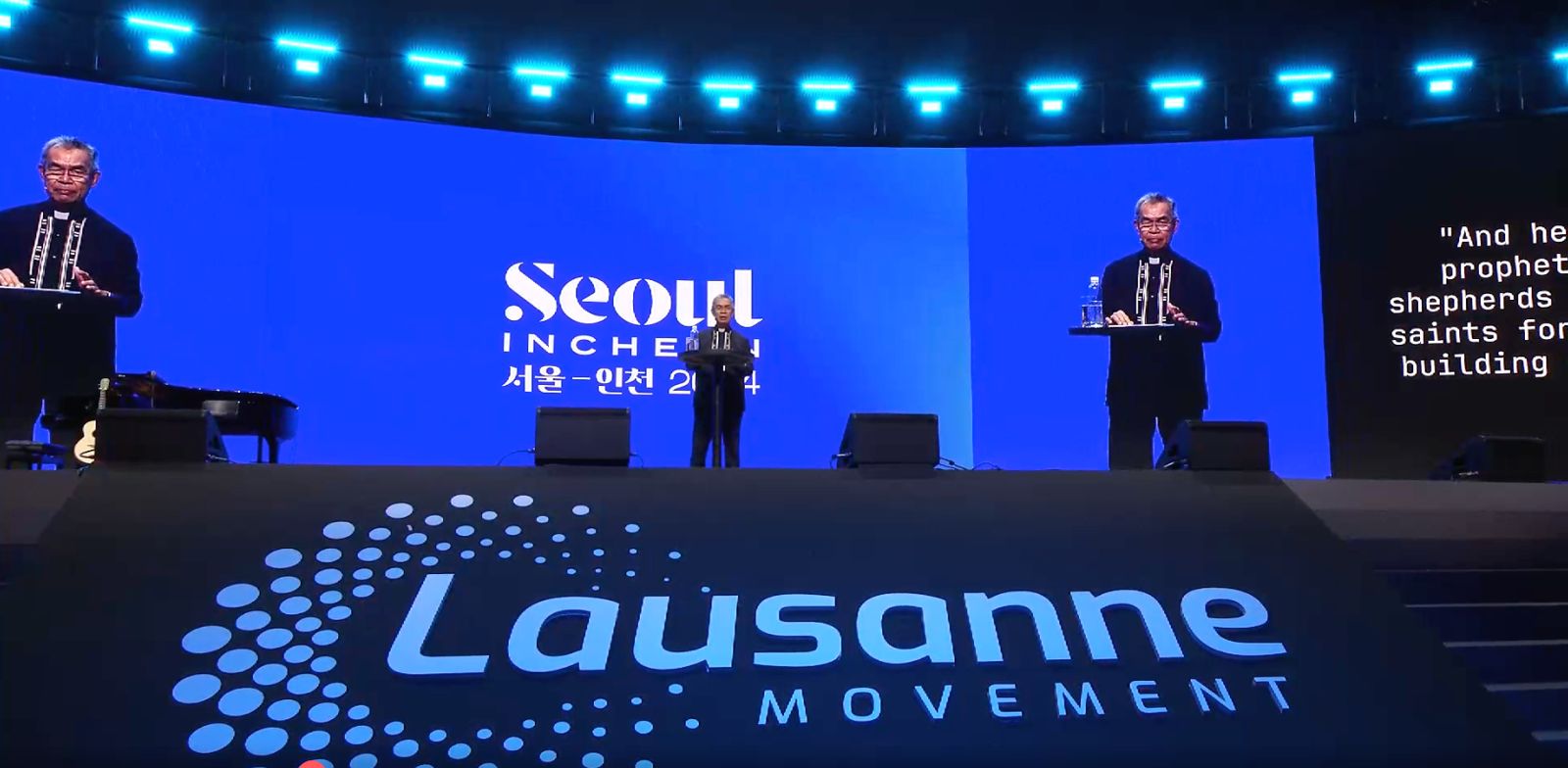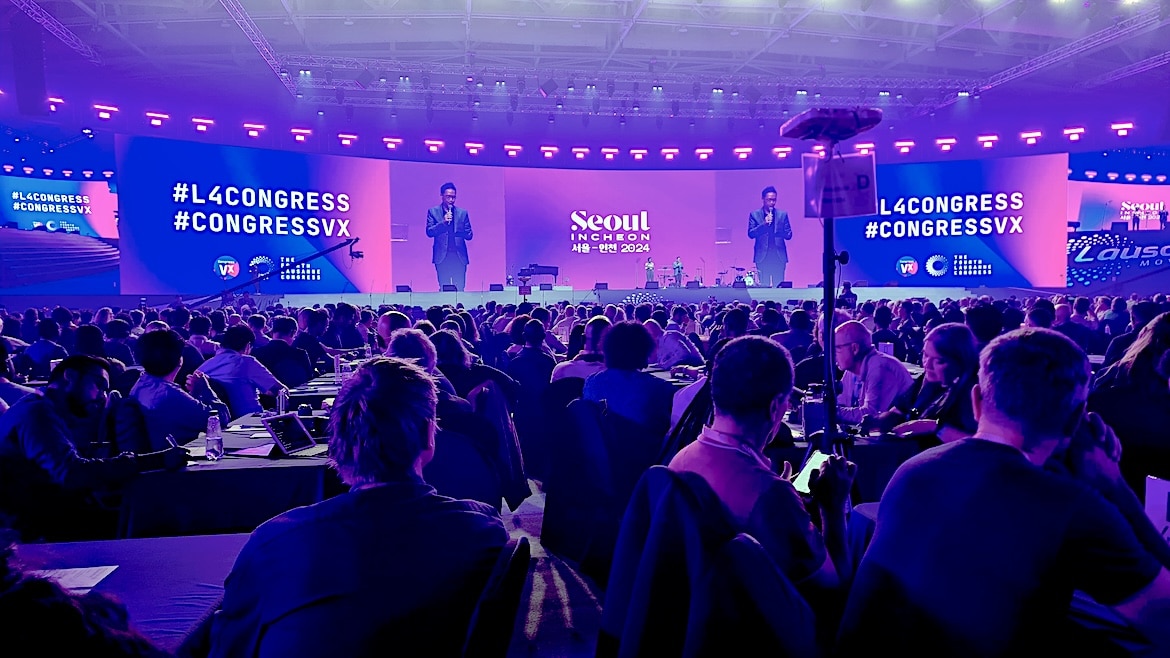3 ways to defend the Truth in media today: Lausanne Movement
by Theresa Tan // May 14, 2024, 10:57 am

Christians must be equipped to engage media with wisdom, defending biblical truth with conviction and grace. The State of the Great Commission spells three ways to navigate and engage media for the body of Christ. Photo by astronaud23 on Unsplash.
The world we live in is heavily influenced by a host of media technologies and messages which are often at odds with each other.
News, entertainment and social media offer conflicting messages, values and worldviews, each battling to arise as the prevalent “truth” and trustworthy source.
It is in this context that the “State of the Great Commission”, a key document in the upcoming fourth congress in Lausanne Movement, discusses how the Church can prepare and protect its evangelistic efforts in the realm of media.
The paper “Propaganda and the Decentralisation of Media” explores how the Church can take a holistic mission approach to this through media awareness, media presence and media ministries.
Upholding trustable truth
When essential information is left out of a news report or article so that the message conveyed intentionally shapes the reader’s opinion in one direction, that is propaganda.
In this day and age, there is no longer one or two trusted sources of information, but many groups and individuals have created their own media channels.

The Chosen, a dramatic series based on Jesus’ life on earth with his disciples is one form of evangelism through media. Photo from thechosen.tv
While this is good in that it levels the playing field for the individual, the decentralisation of media has given rise to echo-chambers, with factions forming in areas from politics and social norms to entertainment and lifestyle.
The pervasiveness of propaganda (half-truths) and the decentralisation of media (which one is true?) makes the need for understanding media urgent.
Christian communicators have to be salt and light in public media spaces.
God is the truth. His written Word is fully reliable, and His truth is fully embodied in his Son, Jesus Christ. These theological truths inspire us to communicate “trustable truths”.
This goes beyond just putting out truthful information. Trustable truth embraces all of life in understandable, relatable and integrated ways.
Communication by God’s people is based on a care for all of life, being a blessing to all the nations and making disciples among all the people groups through wholesome messages.
To establish trustable truths in media today, three areas must be addressed.
1. Develop media awareness
People do not have the time to sift through and compare all sources of information available online. People trust information when it comes from sources they have a relationship with.
God is the truth. His written Word is fully reliable, and His truth is fully embodied in his Son, Jesus Christ.
Christians need to be competent in media literacy and critique in order to navigate media in a way that is relevant but maintains Christian integrity.
This means being able to understand and uncover propaganda messages, and to discern biases within decentralised media.
Being deeply motivated by our Christian faith, we can create space in media for meaningful human fellowship even where differences abound.
Hence Christians must be well-versed and ready to engage on topics like faith education and evangelism.

Christian communicators and personalities like Felicia Chin and Belinda Lee share their faith and walk with God publicly, with conviction and grace. Image from hhm.sg
2. Grow Christian media presence
We can draw from the gospel writer Luke’s strong commitment (Luke 1:1-4) to report truthfully about the origin and spread of the gospel, being responsible to his sources.
A modern day example is SAT-7, a Christian media company in the Middle East and North Africa.
Apart from disseminating information, SAT-7 is intentional about enabling and fostering authentic conversation and engagement in real time.
Propaganda and the decentralisation of media makes the need for understanding media urgent.
It also assists the Church when it faces hostile propaganda and provides an outlet for the Church to publicly explain and demonstrate its message and its life.
Christian communicators and content creators have to be equipped to be salt and light in public media spaces, prepared to live out, share and defend Biblical truth publicly with both conviction and grace.
To establish a trusted media presence, we must have an attitude of trusted personal relationship, regardless of beliefs and worldviews.
We must also model deep respect for others, and be willing to listen and learn, debate and critique.

SAT-7 is a Christian company that believes in media which proclaims, demonstrates and encourages God’s grace and builds trust, says the State of the Great Commission. Photo from sat7.org
3. Build media ministries
The whole people of God must be mobilised to share the gospel meaningfully and with impact across all platforms, in and outside the Church.
Through our personal lives, our church lives, our lives at work, we communicate our beliefs and values – this is our personal witness.
Our personal social media accounts are decentralised media where we share with friends and family, believers and pre-believers, the truth of the gospel in our own personal lives.
Building media ministries in our churches and missions bodies is a powerful way to communicate God’s love, whether through testimonies or encouraging words, and His truth.
In this three-prong holistic missional approach to engaging media, we are guided by Paul’s motto for communication in 2 Corinthians 4:2.
“We have renounced secret and shameful ways; we do not use deception, nor do we distort the word of God. On the contrary, by setting for the truth plainly, we commend ourselves to everyone’s conscience in the sight of God.”

The purpose of the Thirst Collective is to glorify God in the digital space, to transform the nations one story at a time, till every soul is saved.
RELATED STORIES:
“Playing the violin for me is like praying”: One-handed violinist Adrian Anantawan
We are an independent, non-profit organisation that relies on the generosity of our readers, such as yourself, to continue serving the kingdom. Every dollar donated goes directly back into our editorial coverage.
Would you consider partnering with us in our kingdom work by supporting us financially, either as a one-off donation, or a recurring pledge?
Support Salt&Light


